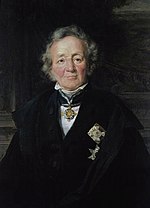
Leopold Von Ranke
German historian and founder of modern source-based history (1795-1886)
British art historian and Soviet spy (1907-1983)
Anthony Blunt was a renowned British art historian and Soviet spy. He made significant contributions to art history, including a acclaimed monograph on the French Baroque painter Nicolas Poussin. However, Blunt’s legacy was tarnished when he confessed to being a spy for the Soviet Union in the 1930s and 1940s, leading to the loss of his knighthood.
Table of Contents
Anthony Frederick Bluntin 1999, at which time it was still considered the best account of the subject.
In 1964, after being offered immunity from prosecution, Blunt confessed to having been a spy for the Soviet Union. He was considered to be the “fourth man” of the Cambridge Five, a group of Cambridge-educated spies who worked for the Soviet Union from some time in the 1930s to at least the early 1950s. He was the fourth member of the group to be discovered; the fifth, John Cairncross, was yet to be revealed. The height of Blunt’s espionage activity was during World War II when he passed to the Soviets intelligence about Wehrmacht plans that the British government had decided to withhold from its ally. His confession–a closely guarded secret for years–was revealed publicly by Prime Minister Margaret Thatcher in November 1979. He was stripped of his knighthood immediately thereafter. Blunt had already been exposed in print by historian Andrew Boyle earlier that year.
Anthony Blunt was a leading British art historian and Soviet spy. He was a professor of art history at the University of London, the director of the Courtauld Institute of Art, and Surveyor of the Queen’s Pictures.
Blunt’s 1967 monograph on the French Baroque painter Nicolas Poussin is still widely regarded as a watershed book in art history. His teaching text and reference work ,Art and Architecture in France 1500–1700, was considered the best account of the subject.
In 1964, after being offered immunity from prosecution, Anthony Blunt confessed to having been a spy for the Soviet Union. He was part of the Cambridge Five, a group of Cambridge-educated spies who worked for the Soviets from the 1930s to the early 1950s.
Blunt’s confession, which was a closely guarded secret for years, was revealed publicly by Prime Minister Margaret Thatcher in November 1979. As a result, Blunt was stripped of his knighthood immediately thereafter.
The height of Blunt’s espionage activity was during World War II, when he passed to the Soviets intelligence about Wehrmacht plans that the British government had decided to withhold from its ally.
Blunt’s role as a Soviet spy was revealed in 1964 when he confessed to it after being offered immunity from prosecution. He was considered to be the ,fourth man, of the Cambridge Five, a group of Cambridge-educated spies working for the Soviet Union.
Blunt’s 1967 monograph on the French Baroque painter Nicolas Poussin is still widely regarded as a watershed book in art history, cementing his reputation as a leading expert in the field.